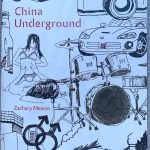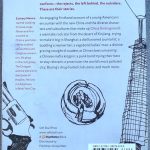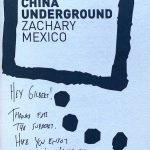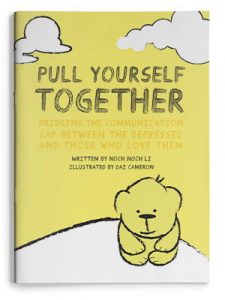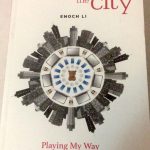Alec Ash in Rotary
I bought Alec’s book during his talk in our Rotary Club of Beijing. The books Wish Lanterns and China Underground have a lot in common.
On 17 October 2017 we had the pleasure to have Alec Ash in our club to introduce his book Wish Lanterns. See the pictures of that lunch and of the copy I bought.
Alec Ash, author of Wish Lanterns, a nonfiction book that follows six young Chinese from childhood to late twenties, shares some of his insights about the generational trends shaping young China today, and how it connects to China’s historical legacy of youth and change.
Alec Ash is a writer in Beijing, author of Wish Lanterns, published by Picador in 2016 and a BBC Radio 4 Book of the Week. He studied English literature at Oxford University, and first moved to Beijing in 2008. His articles have appeared in The Economist, Dissent, The Sunday Times, Foreign Policy and elsewhere. He is managing editor of the China Channel at the Los Angeles Review of Books, contributing author to the book of reportage Chinese Characters and co-editor of the anthology While We’re Here. You can follow him on Twitter: @alecash
See: https://alecash.net/wish-lanterns.html
He leaves me frustrated
Indeed, I started writing about contemporary Chinese society time ago, a project I abandoned, see: https://www.damulu.com/modern-chinese-society/
I am in the process of writing my next book (a political manifesto) but also gathering data for a book about “China today”, or something like that. But reading Alec’s book I feel, how can I “compete” against that?
I admire the way he could make it sound like a novel, but filled with so many contemporary issues that Chinese society is facing. Many of the details he mentions are too familiar to me. And believe me, he is accurate. I wonder how he managed to get and remember so many details from the young people he met, followed and interviewed.
The only criticism I could have is that the different stories are “all mixed up” in the sequence. But I guess that comes from the fact I took a too long time to finish the book… I actually I had to restart from the beginning…
So, a book I strongly recommend if one wants to understand where China stands today. Yes, life is not easy for the young generation
Zachary Mexico
Wish Lanterns and China Underground basically follow a similar approach, telling the stories of real people, the stories of the “real China”, but more focused on the fringes of society – reason for the title “China Underground”. I sadly forgot how and when I met the author.
Also here I can confirm the stories sound pretty genuine to me as I do go around a bit and go where other foreigners seldom appear (usually I keep my mouth shut about all that).
To be honest reading the books like Wish Lanterns and China Underground will teach you more about the real China than those ramblings from “sinologists” and “Old China Hands” (Zhongguo Tongs like they are being called). Reason why I refuse those titles…
In China you never stop learning.
So now my challenge is clear: what can I still write about?
